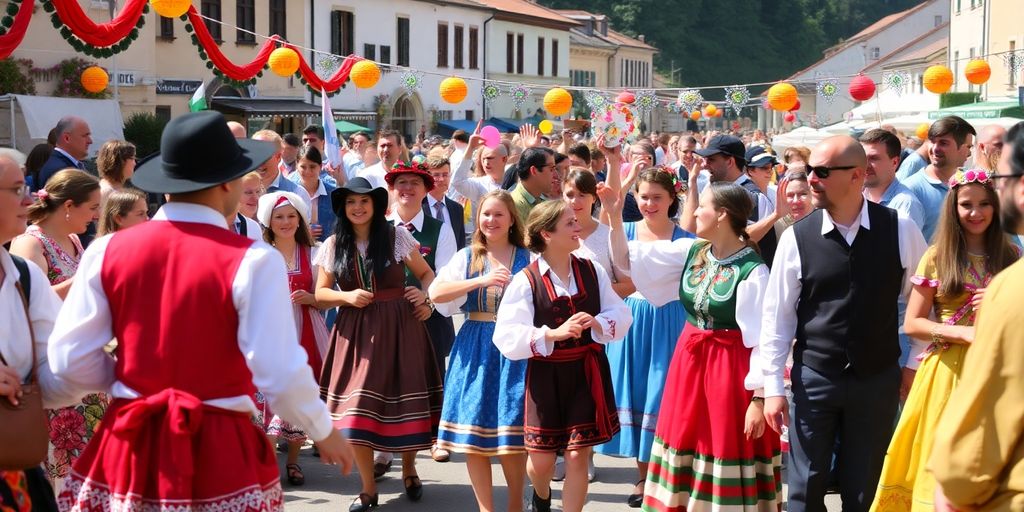On February 9, 2025, Slovenia celebrated its Cultural Holiday with a significant event marking the ceremonial opening of the cross-border European Capital of Culture. The event, titled "From Station to Station," aimed to unite the cities of Nova Gorica and Gorizia, showcasing the transformative power of art and culture in the region.
Key Takeaways
- The event celebrated the opening of the European Capital of Culture for 2025.
- It highlighted the collaboration between Slovenia and Italy, focusing on cultural diplomacy.
- The Minister of Culture emphasized the importance of culture in promoting democratic values.
The Significance of the Event
The opening ceremony was attended by various dignitaries, including European Commissioners and cultural ministers from several countries. Minister of Culture Asta Vrečko expressed pride in the project, stating that it reflects both the historical and contemporary significance of culture in Slovenia and Europe.
The event is seen as one of the most important international cultural milestones in Slovenia’s history, aiming to enhance the global visibility of Slovenian culture. Vrečko noted that the initiative is not just about celebrating local culture but also about fostering international cultural relations.
A Vision for the Future
The slogan for the European Capital of Culture, "GO! Borderless," encapsulates the event’s vision of transcending borders through culture. Vrečko articulated that this initiative is about more than just the freedom of movement within the European Union; it is about extending cultural connections beyond geographical boundaries.
She emphasized that culture has the power to unite communities and promote peace, stating, "No culture exists in isolation." This sentiment reflects a broader goal of using cultural initiatives to inspire dialogue and understanding among diverse communities.
Dignitaries in Attendance
The reception at Hotel Perla was a gathering of notable figures, including:
- Marta Kos, European Commissioner for Enlargement
- Glenn Micallef, European Commissioner for Intergenerational Fairness, Youth, Culture, and Sport
- Italian Minister of Culture Alessandro Giuli
- Greek Deputy Minister of Culture Iason Fotilas
- Representatives from various cultural ministries across Europe
This diverse attendance underscores the collaborative spirit of the event and the importance of cultural diplomacy in today’s interconnected world.
Conclusion
The Slovenian Cultural Holiday, coinciding with the opening of the European Capital of Culture, serves as a reminder of the vital role that culture plays in shaping societies. As Slovenia embarks on this year-long celebration, the hope is that it will inspire future generations to appreciate and engage with the arts, fostering a sense of community and shared identity across borders.






